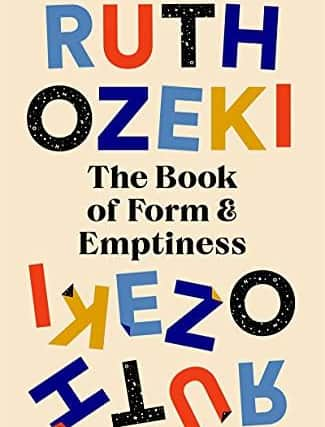Book review: The Book of Form & Emptiness, by Ruth Ozeki


“Shhh….Listen. That’s my Book, and it’s talking to you. Can you hear it?” It’s okay if you can’t though. It’s not your fault. Things speak all the time, but if your ears aren’t attuned, you have to learn to listen.”
This is how Ruth Ozeki’s new novel starts, with sentences that call, whimsically and pretentiously, for your attention. There are a great many such sentences in this fat, over-stuffed novel, and it leads this reviewer at least to sigh for the days when strong-minded editors were more important in publishing houses than the marketing department. The blue pencil would have come out, underlining a sentence or indeed paragraph and scribbling “self-indulgent” in the margin. There aren’t many of Ozeki’s pages that would have escaped the blue pencil.
Advertisement
Hide AdIt’s a pity. There are many good things in the novel. There could scarcely fail to be because Ozeki often writes well and has good and interesting theme here: bereavement, in this case the death of Kenji, a jazz musician, a Japanese clarinet-player whose band plays 1940s Swing, and the effect of his death on his wife and their son Benny, named in honour of Benny Goodman, Kenji’s favourite band leader. This is handled well, in realistic fashion. Annabelle worried about her job and finances, then, more urgently, about Benny who begins to hear voices, birds, the wind and inanimate objects all talking to him. All this rings true, and the breakdown Benny suffers is convincing. How to recover? Psychiatric treatment or some other sort of cure? He begins to find his way to recovery through books.


All well and good and quite nicely done, when what happens is presented to us through Benny’s experience and from his point of view. But then there are passages, often very long passages, described as being from The Book addressing the boy: “That fly on the wall isn’t a coping tool, Benny. It’s the sound of a young person finding his voice, and in the world of books this is nothing short of a miracle.” Apparently when a boy or a girl makes such a discovery “all of us, from the most ancient tablets inscribed in clay to the cheapest dime-store paperbacks, take note and rejoice because without your voices we wouldn’t exist.” Well, no; neither such tablets nor paperbacks can rejoice. This is flapdoodle, the sort of thing that means nothing at first reading and nothing at any subsequent one. So we have writing around Benny’s distress and pain, and there is a general and tedious fuzziness to much of the novel. Silliness too. If, however, you think a spoon can speak of its sorrows, this may be your sort of novel.
Given that Ozeki is an intelligent and talented writer, capable of presenting us with good scenes and genuine emotions, her self-indulgence is as irritating as it is disappointing. She proclaims and preaches respect for all living things, indeed for inanimate objects also, but not, it seems, for the craft of fiction. In an interview she said that if she happened on something new or interesting when she was working on this book she would put it in the novel. So, for instance, when she found a picture of Apollo 11 astronauts in her new house, Benny became – had to become? – “a moon obsessive.” Well, anyone writing a novel may be pleased to happen on some unexpected fact or notion which might possibly enrich it, but, as often as not it’s wiser to reject it if it threatens to wrench the narrative in a new direction. This novel has, as I say, good passages, but there is little sign of a respect for Form and vast areas of Emptiness. And Emptiness in a novel usually means boredom. A cold-eyed, cold-hearted editor might have cut the book by half and improved it no end. Nevertheless, its general theme is in tune with the fashions of the day, so I expect it will sell handsomely.
The Book Of Form & Emptiness, by Ruth Ozeki, Canongate, 546pp, £18.99
A message from the Editor:
Thank you for reading this article. We're more reliant on your support than ever as the shift in consumer habits brought about by coronavirus impacts our advertisers.
If you haven't already, please consider supporting our trusted, fact-checked journalism by taking out a digital subscription at https://www.scotsman.com/subscriptions